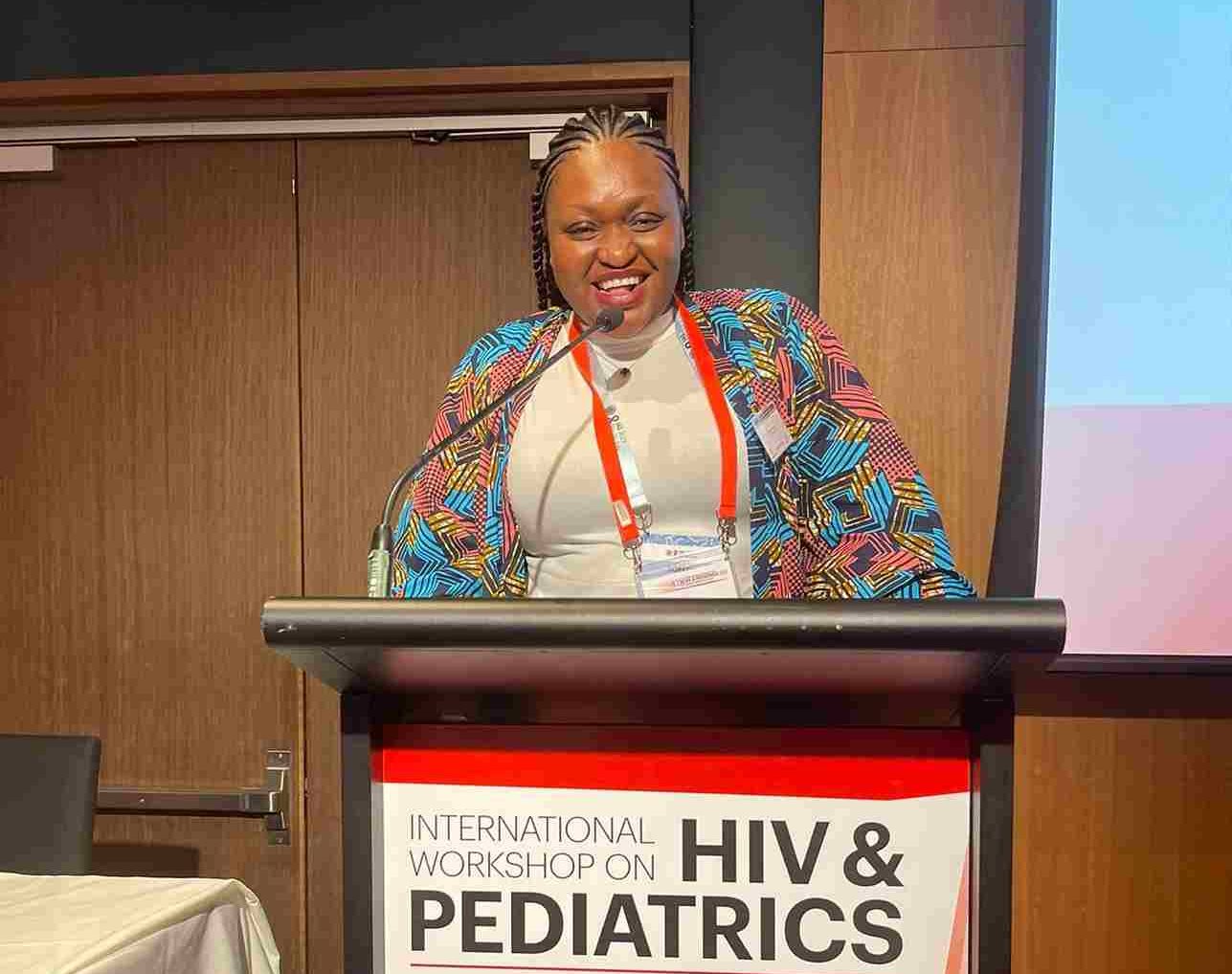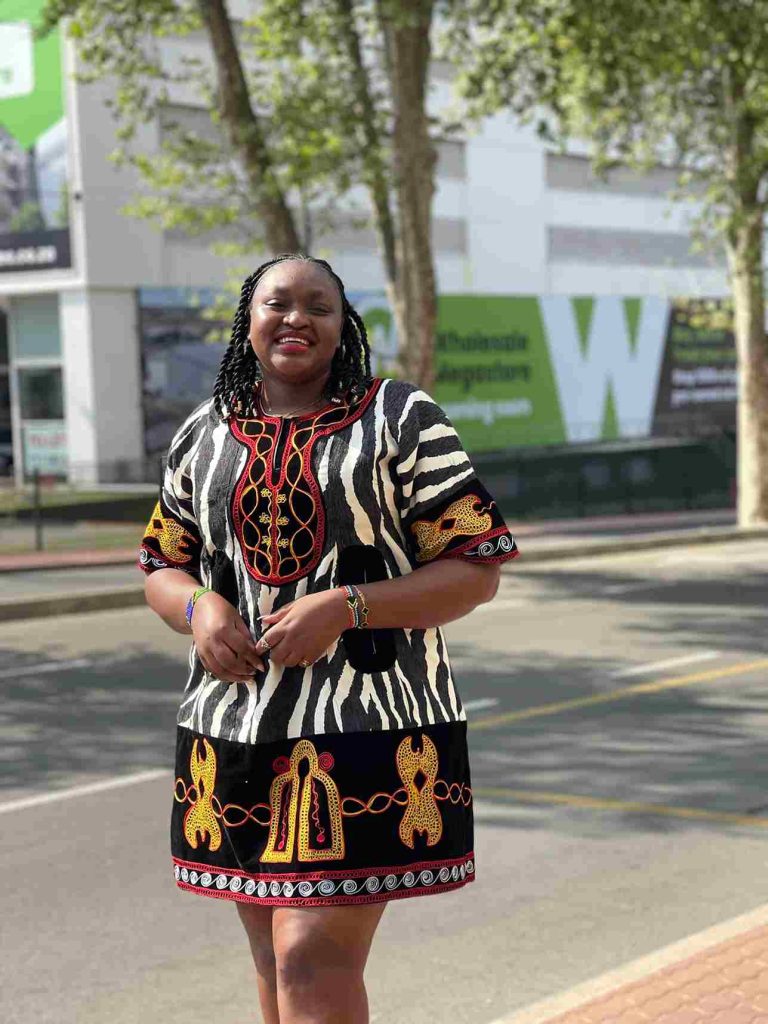When Doreen Moraa Moracha went public with her journey as a young woman living with HIV in 2015, she committed herself to creating awareness and spreading positivity about the disease.
It has since been a steadfast and fruitful eight-year journey for Doreen, who has helped broaden people’s understanding of what the life of a young African woman born with HIV is like. Through her awareness efforts, 31-year-old Doreen has interacted with hundreds of grassroots, national, regional, and global leaders in the HIV/AIDS space, where she has contributed to discussions, research, and policy development. She has been a guest on numerous forums, where she has shared her experiences as a young African woman living with HIV.
Online advocacy
Aside from her public participation engagements, Doreen uses the powerful medium of social media to pass on her advocacy messages. A scroll through her Facebook, X (formerly known as Twitter), Instagram, and YouTube accounts offers one glimpse into her life as a young woman positively living with HIV.
In them, Doreen talks about acceptance of one’s positive status, taking ARVs and the need for adherence, safe sex practices, the need for testing, and other related messages. She is a source of encouragement to other people living with HIV/AIDS (PLWHA) who seek inspiration, encouragement, and solace. She has a combined following of over 215,000 people across her social media platforms, whom she endeavours to reach with each post.
The moralization of people with HIV
Doreen’s advocacy journey has, however, not been easy, especially on social media. She has been trolled, abused, harassed, stalked, and has been on the receiving end of vicious and unwarranted attacks due to her online activities.
In this article, Doreen talks about some of these experiences that have many times attempted to discourage her from her purpose.
“One thing that I’ve come to understand is that HIV and AIDS are highly moralized issues in society. The conclusion that many people have is that ‘you were sexually immoral’ hence your positive HIV status. No matter the circumstances, to them, you were a ‘bad girl’ and that’s it.
I’m a woman living with HIV who is not ashamed of her status. This acceptance shows in the posts that I publish on my social media platforms, most of them being photos of myself sharing an advocacy message. I am a happy, bubbly person by nature with a positive attitude toward life, and I also love sharing this personality in my posts.
However, this comes with its repercussions, as observed in the comments section of my posts. People’s opinions reveal the prejudices, stereotypes, selfish desires, fetishes, and opinions society has about PLWHA. In a society that expects PLWHA to be silent and simply ‘grateful to be alive’, it is particularly worse for a young woman like me who is public about her status.
People’s curiosity about my sex life
I have always found it peculiar how men are very interested in my sexual life. They always ask me if I’m sexually active and if I could kindly explain to them how. I may have shared an insightful message about HIV, but all they want to know is if I have sex, with whom, how often, and where. They also express their interest in having sex with me.
“You are a very beautiful woman. Could you please have sex with me? I’m ready to risk it all just for you. All I want is to have a taste of you. If I die, I die,” they say.
Marriage proposals and secret lovers
Other men also assume that since I’m HIV positive, I don’t enjoy the benefits of sexual intimacy. Feeling sorry that no man desires me, they offer to help me get a sexual experience by volunteering to sleep with me. They feel like they are the heroes in my sad story. Many proposition me to be their secret lover. Others offer to sire a child with me, even as they quickly clarify that they are not interested in marrying me.
I have also received numerous marriage proposals. My inbox is constantly buzzing with messages of the same.
“All this beauty cannot go to waste. Can I marry you as a second wife? You shouldn’t die alone. That wouldn’t be fair,” they write.
Each day, I receive about three to five marriage proposals. The men come in all their varieties—married, engaged, divorced, single, separated, in ‘complicated situationships’—all of them. They don’t even bother to conceal their real identities.
One time, I posted about a certain awareness event and shared my public number, where people could contact me for more details. But it was a decision that I regretted soon after. One morning, I woke up to messages from four different men who had sent photos of their private parts to my WhatsApp. I was so shocked! It did not matter that they had sent their real numbers, where I could check on their profiles to establish their identity. I had to quickly delete my number publicly as my WhatsApp became inundated with such lewd pictures.
The worst comment I’ve ever received
Another interesting thing is how people attack my choice of outfits. Society has expectations about how women with HIV should be: quiet, humble, domiciled, and almost invisible.
Depending on the mood of the day, I’ll put on dresses, skirts, trousers, suits, and sometimes shorts. However, the comments I receive are about how I should dress decently in long dresses that cover my entire body. Again, it’s always the men.
One of the most disheartening comments that I have ever received was when I shared a photo of myself on my Facebook page wearing a white t-shirt and a lime green skirt that was slightly above my knee. While I’m used to receiving a myriad of comments on each post—some negative and some positive—there is one comment that piqued my interest.
The man, in response to my photo, commented that “I am just an HIV-infested harlot basking in a bliss of fallacy, cheap perceived glory, and social media-derived grandeur being my daily shot of thrill.”. His purpose was to shame me and ignite a discussion aimed at humiliating me.
I have never forgotten how terrible that comment made me feel. It completely put me down, dampening my spirit and threatening my will to continue posting on social media. His comment was viewed, liked, and reacted to by hundreds of other online users. Some agreed with him, while others castigated him. I read all the comments. It was horrible.
The downside to my public status is that the mean comments don’t stop. Each day, there will always be a nasty comment. There is always someone waiting to pounce on me.
The notorious platforms
Of all the social media platforms, I find that X and Facebook are particularly vicious. People spew all the bile in them there.
Bloggers are not left out, either. I have had blogs lift photos from my social media pages and write articles with titles such as “Meet the sexy HIV activist giving men sleepless nights.”
The articles are often skewed to make readers focus on my body. Sadly, this is not how I want my advocacy reported, but it doesn’t matter to them. As long as their pages get clicks and likes, they don’t care about the damage it does to someone. Many times, I find myself at a loss about what action to take against them.
Difference between men’s and women’s comments
From my online engagements, I have noticed a difference in men’s and women’s comments. Most of the men’s comments are often sexual, with many others aimed at muzzling me.
On the other hand, women’s comments are more supportive because they encourage me to keep taking my ARVs, to keep sharing my messages of encouragement, and to keep being positive about life. However, there is a comment a woman once made that discouraged me.
She told me that HIV cannot and will never be a good thing to talk about. She said that I should know that I’ll still die, no matter how much I embrace my positive status. Such discouraging comments sometimes get to my head, but I do my best to stay positive.
Lessons learnt
I must admit that my social media behaviour has changed over the years. I used to post consistently, daily. I also used to read each comment and take it to heart, especially the negative ones. Then one day I realized that I was taking online people too seriously, and it was affecting my mental health. Nowadays, I don’t engage too much. I have set aside a day off from social media, which is Sunday. It is the day that I log off completely, sometimes uninstalling the apps so that I don’t get tempted to log in.
The comments that I receive on my social media posts have made me learn some important lessons.
I have learned that once you state publicly that you are HIV positive, there’s no going back. I have also become acutely aware that stigma and discrimination against PLWHA are still rife in society. I didn’t know that people would still look at me as less of a person just because of my positive status. I have had people tell me that I’m a beautiful woman, but unfortunately, I’m HIV positive. There is always that ‘but’ that is a wall between us.
I’ve also learned that many people are uncomfortable with my being vocal and will try their best to silence me. I now know that human beings are very complicated.
Lastly, all my online experiences have enabled me to enrich discussions that are aimed at creating more HIV/AIDS awareness in society. I’m glad to be an HIV ambassador.
RELATED
- Navigating the Digital Battlefield: Wanjiku Thiga’s Experience in Kenya’s 2022 General Election
- Private: Hated, but Unafraid: Living with HIV in the Age of Online Hate
- The Price of Visibility: A Queer Activist’s Battle with Online Trolls
This interview was conducted by Maryanne W. Waweru is part of KICTANet and APC’s Our Voices Our (OVOF) work. This anthology of stories under the title “Narratives of Strength and Survival” is aimed at documenting the lived experiences of Kenyan women and girls who have faced online gender-based violence at a personal level.
![]()





